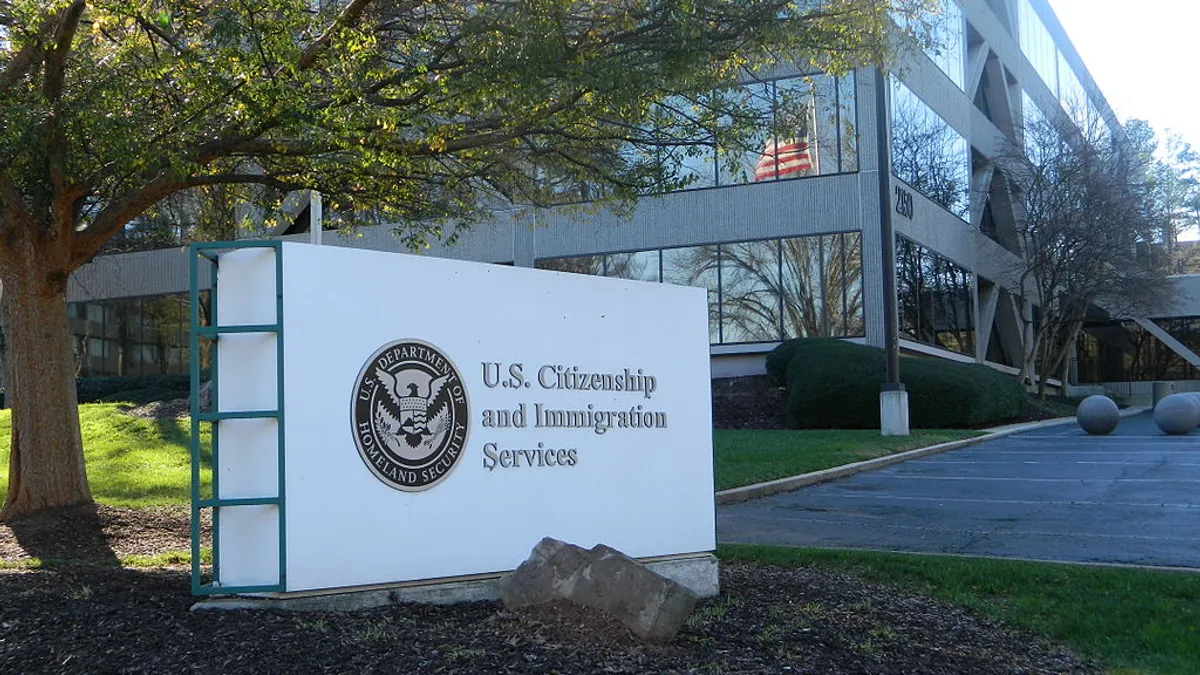Dive Brief:
- A top U.S. Department of Homeland Security official said Wednesday that certain college officials overseeing international students are exhibiting "willful ignorance" or "a level of negligence" that could cause the department to terminate their role.
- The comments were about an investigation of the Optional Practical Training program, through which a quarter-million foreign nationals work in the U.S.
- The probe could extend to schools whose students may have violated OPT rules, the official said.
Dive Insight:
In a statement Wednesday, the head of NAFSA: Association of International Educators called the comments a "reckless attack on key members of the higher education community." Esther Brimmer, the organization's executive director and CEO, continued, saying it is not school officials' job to investigate employers.
"Actions like this will further deter current and future international students from choosing to study in the U.S.," Brimmer said.
The Homeland Security Department said during a press briefing Wednesday it arrested 15 OPT participants who claimed employment through nonexistent companies. The announcement entailed the “preliminary results” of an ongoing probe of fraudulent OPT use, called Operation OPTical Illusion.
Ken Cuccinelli, the acting deputy homeland security secretary, said U.S. Immigration and Customs Enforcement found some 3,300 individuals "whose situation looked suspicious." Of that group, 1,100 were found unqualified to stay in the U.S.
Cuccinelli said the department plans to revoke the work permits of 700 people, while the remaining 400 would not be able to have them renewed because they expire soon.
The announcement was vague, and it did not clarify which colleges were in question or the timeline for further inquiry. ICE did not respond to Education Dive's emailed request for more details Thursday. However, Cuccinelli said during the briefing, they "fully expect to be terminating a fair number" of designated school officials.
The Trump administration continues to tighten immigration requirements, including for students and scholars.
It recently issued new rules that narrow eligibility for H-1B visas, which allow U.S. companies to employ foreign workers in high-skill jobs. Now, participants will have to show a "direct relationship" between the job and their academic background.
A lawsuit filed Monday against the rule change argues the link between degree and occupation may be indirect in emerging fields. It also notes that specialized degrees are a fairly new phenomenon, meaning older workers might not have been in college when they were available.
Cuccinelli indicated the relationship between a person's degree and their OPT job is a focus of the current probe.













